For most of us, changing corrupt dealings we experience every day remains insurmountable. We are often afraid what will happen to us if we do report corruption. Those who do come forward often bear great personal risks. That is why the UN Convention against Corruption, which our kingdom has ratified, affords whistleblowers a special status […]
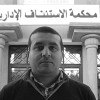
Moroccan whistleblowers: The public’s conscience
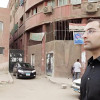
Egypt: A new diagnosis for an old illness
This blog post is part of a series drawing on articles from the forthcoming project It Belongs to You: Public Information in the Middle East and North Africa. Behind the imposing edifice of the shiny Egyptian World Trade Centre on the corniche in Cairo lies the decrepit hospital of Boulaq Abu Ela. A rubbish heap […]

REDD+: what you see isn’t always what you get
A colleague recently likened his experience tracking climate and REDD+ money in Mexico to an archaeological dig. Little by little, fragments of your object begin to reveal themselves, but not without a significant amount of time, resources and tenacity. At Transparency International we have been monitoring climate finance flows in six countries – of which […]
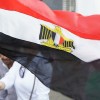
Egypt in crisis: A look at corruption figures for the last two years
Egyptians are sharply divided over the military’s recent ousting of President Morsi on the back of large-scale popular demonstrations against his rule. They are far more unified, however, in their views on what ails the country. Corruption is at the forefront of those concerns. On 9 July 2013 Transparency International released the Global Corruption Barometer […]
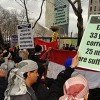
Corruption in post-revolution Yemen – a personal perspective
Yemenis of all stripes took to the streets in early 2011 demanding change, especially not to let corruption continue unabated. In November 2011, the protestors succeeded in ousting Ali Abdullah Saleh,Yemen’s president for over 30 years, and ushering in a new era of democratic hope. Since then, governmental agencies, parliamentary committees, media associations, NGOs and […]
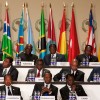
African Renaissance comes through the reinforcement of institutions
The African Union (AU) celebrates its 50th anniversary on 25 May with an extraordinary summit in Addis Ababa, under the theme “Pan-Africanism and African Renaissance”. The AU as it has been known since 2002 is the successor to the Organization of African Unity founded (OAU) on 25 May 1963 when 32 recently independent African countries […]
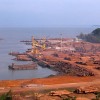
Les héros de la lutte contre la corruption : une interview avec Gregory Ngbwa Mintsa
En décembre 2008, le citoyen gabonais Gregory Ngbwa Mintsa a courageusement pris position contre la corruption. Avec Transparence International France, il a déposé une plainte qui dénonçait le détournement présumé de fonds publics au Gabon. Cela fait partie des Biens Mal Acquis, une enquête sur plusieurs présidents africains soupçonnés de voler des fonds publics à grande […]

Anti-corruption heroes: an interview with Gregory Ngbwa Mintsa
In December 2008, Gabonese citizen Gregory Ngbwa Mintsa took a brave stand against corruption. Together with Transparency International France, he filed a legal complaint denouncing the alleged embezzlement of public funds in Gabon. This was part of the Biens Mal Acquis case, an investigation into several African presidents suspected of stealing public assets on a […]
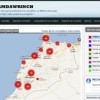
How to fight corruption with online tools: best practice from Morocco
There was a general feeling of excitement and optimism about the new role of technology to promote transparency and accountability at the Transparency International SpeakUp! event which I attended in March 2013. There was quite a buzz about online denunciation tools in particular, and different Transparency International chapters are looking into ways to embrace new […]
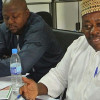
Ending corruption in Nigeria: Every help is needed
Abuja, the capital of the oil rich nation Nigeria, a “planned city” built in the 1980s, is one of the wealthiest and most expensive capitals in Africa. Very few Nigerians can afford living there. Shanty towns with mass poverty, high unemployment, and poor sanitation is a much more common environment for the vast majority of […]
- State Capture in South Africa 14 February 2017
-
 What’s next for Ukraine?
16 December 2016
What’s next for Ukraine?
16 December 2016
-
 Cleaning up sport: conflicts of interest at the top
9 December 2016
Cleaning up sport: conflicts of interest at the top
9 December 2016
-
 OGP: France must do more to tackle corruption
9 December 2016
OGP: France must do more to tackle corruption
9 December 2016
-
 Pharma companies in Slovakia: Uncovering conflicts of interest
9 December 2016
Pharma companies in Slovakia: Uncovering conflicts of interest
9 December 2016
-
Nokubonga Ndima: Young people can make a change for a better future...
-
Benjamin M: Very good article! Congrats!...
-
arun kottur: In India sports minister was involved decades are ...
-
Ekonomi: Very beneficial article. Thank you very much. htt...
-
ksweeney1: I do not agree that https://apex.aero/2016/09/22/g...
Search
Categories
Latest news from Transparency International
No items, feed is empty.

 Connect with us on Facebook
Connect with us on Facebook Follow us on Twitter
Follow us on Twitter